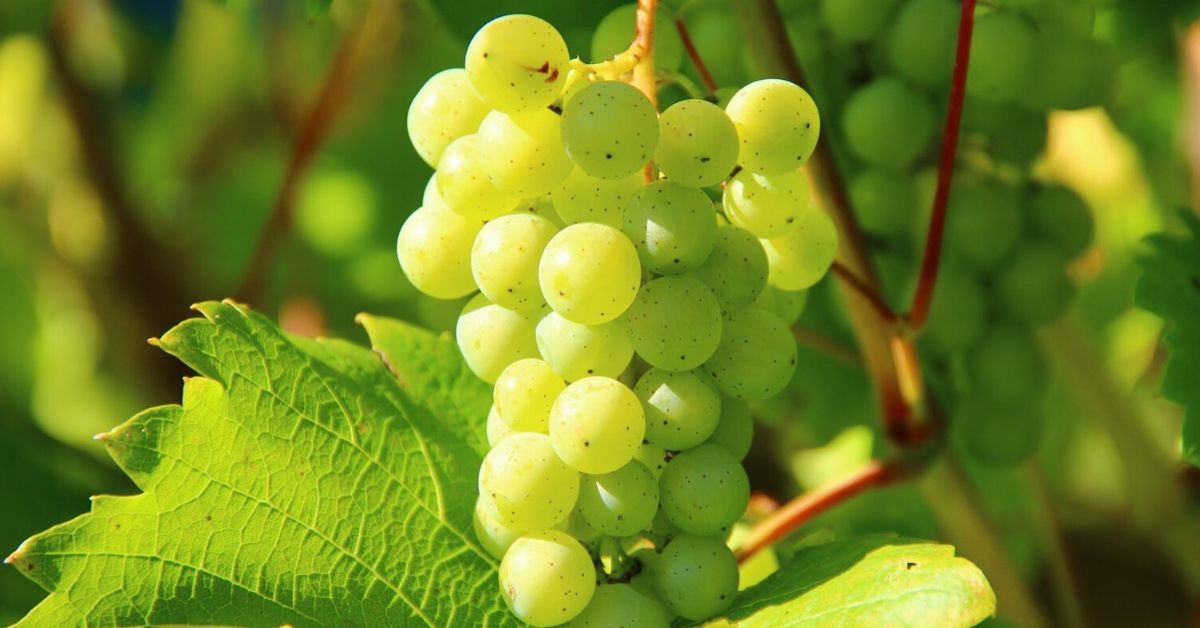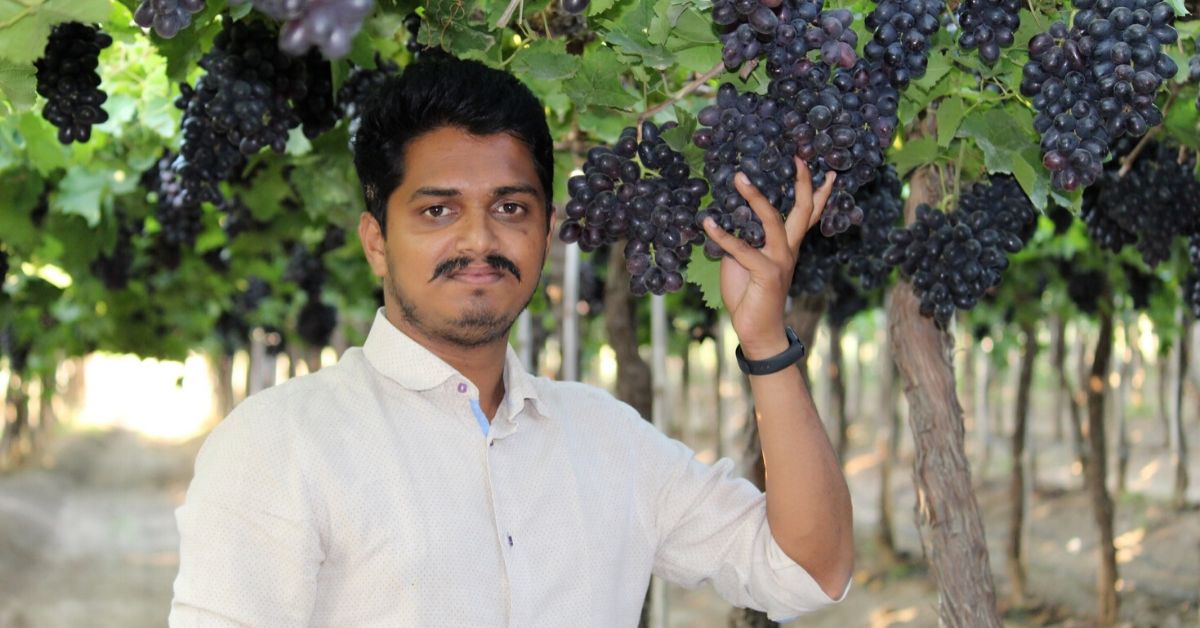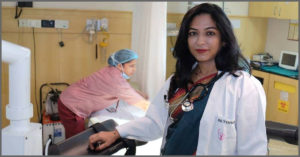‘Grapes of Rot’: A Fictional Tale Inspired by an Article on The Better India
Rashmi Bansal is the author of 11 non-fiction books on entrepreneurship which have sold more than 1.2 million copies and translated in 12 languages. She is the #1 business books

Rashmi Bansal is the author of 11 non-fiction books on entrepreneurship which have sold more than 1.2 million copies and translated in 12 languages. She is the #1 business books author in India. Inspired by lockdown, Rashmi is writing short, uplifting fiction which releases each day at rashmibansal.in. This fictional narrative is inspired by an article published on The Better India. Read till the end for a sweet surprise!
The air was fragrant with promise. Like a pregnant woman in her final days, the grapes on the vine were oh-so-plump. In a day or two, they would be ready to harvest.
Dhondu was in seventh heaven. Ever since he switched to growing grapes, his fortunes had skyrocketed.
It wasn’t easy in the beginning, but once he got the hang of it, there was no looking back. From a modest 1-acre, his farm had expanded to 10.
Ghar pe aaya television, two motorcycles, a solar panel, and the latest addition – a computer.
“Kaytari naveen karnaar faydecha aahe (It is beneficial to try new ideas),” he would boast to his friends and relatives, who were still cultivating jowar or wheat.
But this year, he sat on the charpoy in his verandah, with his head in his hands. Some strange disease called coronavirus had gripped the country. The mandi was shut, transport suspended, and all the workers had disappeared.
So how was he going to harvest the grapes, and where would he sell them? The future was indeed looking bleak.
In despair, Dhondu summoned his three sons and said, “Do you have any ideas… something that can get us out of this mess?”
The oldest of the three, Vilas, was a hefty young man with a bit of a swagger. He had heard of something called ‘wine’ made from grapes.
“Baba, aamhi try karto, angooracha daru tayar karto…” (Father, I will try to make wine from the grapes).
At any other time, Dhondu would have slapped the boy’s knuckles. But desperate times call for desperate measures. He gave the green signal.
“Take three acres of grapes… but do something!”
The second son, Ulhas, was a more practical chap. He knew of someone with a chikoo farm, who had loaded a tempo and sold his harvest in Mumbai. Not in the wholesale market, but directly to customers.
The chikoo farmer sent out a WhatsApp message, offering the fruit at an attractive price, to any housing society which was willing to place a bulk order. And this way, he had sold over 600 kg of chikoo in a single day.
Dhondu was not convinced, but he gave the green signal.
“Take six acres of grapes…. but do it quickly!”
Ulhas was a clever chap; he even came up with a scheme to get labour. He called the district collector for information on the nearest camp of migrant workers. As harvesting was an ‘essential service’ during the COVID-19-induced lockdown, he managed to get eight labourers to pick the grapes. They were housed in a makeshift tent under the shade of a banyan tree, with aai’s kitchen supplying bajre ki roti, poli, and chaha.
Thanks to the wonders of WhatsApp, orders started coming in. Hiring a tempo at double price, Ulhas dashed to Mumbai and managed to sell most of the grapes.
The sale didn’t yield a huge profit but enough to lift Dhondu’s spirits. He would not have to worry about money for the next few months. The only thing that worried him was the youngest son, Ninad.
An acre of grapes remained to be picked. But when he tried to get Ninad to take responsibility, the boy was indifferent.
“Baba, majhi online class madhe disturb nako kara. (Father, I am busy with online classes. Do not disturb me!) Let the grapes be as they are.”
Ever since Ninad had enrolled in the agricultural university in Nagpur, his head was in the clouds. He kept talking about strange new things he learnt, which made no sense. And now that he was back home from the hostel, all he did was talk to the computer. Who talks to a computer!
Why, even that useless Vilas, at least he had tried!
They couldn’t make wine because it was not that easy. But it had been enjoyable to jump on all those grapes. Thoda tension body se nikal gaya. (He felt some of the tension melt away).
If only Ninad would realise that a farmer’s son must think like a farmer. Damn this education!
***
Six weeks later, the grapes had transformed into ‘raisins on the vine’. Plump, juicy and sold for five times the price of ordinary grapes. “Baba, my professor was guiding me step-by-step. Thank him! And thank the computer…”
Now all the farmers in the area are queuing up at Dhondu’s door, to learn how to make raisins on the vine.
Kaytari naveen shiknaar faydecha hotel! (It is indeed beneficial to try new ideas!)
This fictional short story by Rashmi Bansal was inspired by ‘Making Raisins on Grape Vines: Pune, Nashik Farmers Innovate to Tackle Lockdown’, published on The Better India on May 7, 2020.

Like this story? Or have something to share?
Write to us: [email protected]
Connect with us on Facebook and Twitter.
This story made me
- 97
- 121
- 89
- 167
Tell Us More
We bring stories straight from the heart of India, to inspire millions and create a wave of impact. Our positive movement is growing bigger everyday, and we would love for you to join it.
Please contribute whatever you can, every little penny helps our team in bringing you more stories that support dreams and spread hope.



















